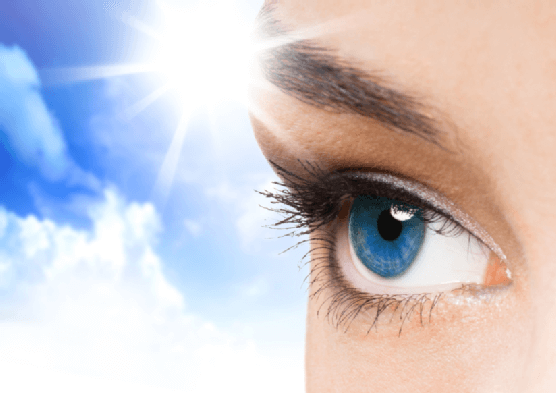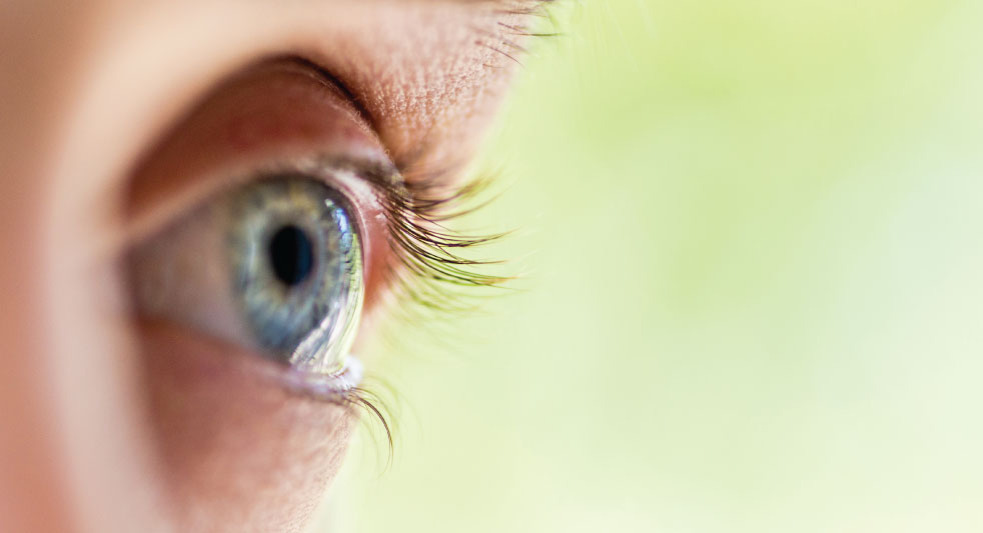Cataracts are a leading cause of vision loss in the world, and they can occur at any age. However, early onset cataracts are a particular concern, as they can cause significant vision loss in a relatively short amount of time. If you or someone you love is experiencing symptoms of early onset cataracts, it’s important to get medical help right away. In this blog post, we will discuss what you need to know about early-onset cataracts. We will also provide information on how to get treatment for this condition.
What Are Early Onset Cataracts?

Early onset cataracts are a type of cataract that develops in young people, typically before the age of 40. Early onset cataracts can be caused by a variety of factors, including genetics, trauma, certain medications, and underlying medical conditions.
While early onset cataracts are generally not as visually disabling as age-related cataracts, they can still cause significant vision problems and may require treatment. Treatment for this type of cataract typically involves surgery to remove the cloudy lens and replace it with an artificial lens.
If you have early onset cataracts or are at risk for developing them, it’s important to see an eye doctor regularly for monitoring and care. With proper treatment, most people with this type of cataract can maintain good vision. Sometimes, however, vision loss from early onset cataracts may be irreversible.
Symptoms of Early Onset Cataracts

There are many potential symptoms of early onset cataracts, but the most common symptom is blurry vision. Other potential symptoms include:
Worsening of Vision
One of the main symptoms of early onset cataracts is worsening vision. If you have early onset cataracts, you may notice that your vision is gradually getting worse over time. This can make it difficult to read, drive, or do other activities that require good vision. Sometimes, vision loss from early onset cataracts may be irreversible.
Glare and Halos
Another common symptom of this type of cataract is glare and halos. This means that you may notice light appearing unusually bright or causing glare, and you may see halos around lights. This can make driving at night difficult and can be a nuisance in everyday life. It can also be dangerous if you’re not able to see properly while driving.
Changes in Color Perception
Early onset cataracts can also cause changes in color perception. This means that you may notice colors appearing duller or less vibrant than they used to. You may also notice that your vision is more sensitive to light than it used to be. These changes can make everyday activities, such as watching television or working on the computer, more difficult.
Eye Pain and Sensitivity to Light
Early onset cataracts can also cause eye pain or sensitivity to light. If you have early onset cataracts, you may find that your eyes are sensitive to bright light or that they hurt when exposed to bright light. You may also notice that your eyes feel tired or strained more easily than usual. This sign is also common in people with migraines.
Double Vision
Another symptom of this type of cataract is double vision. This means that you may see two images instead of one when you look at something. Double vision can be very confusing and can make it difficult to do everyday activities, such as reading or driving. Through surgery, this symptom can be corrected.
Fading or Yellowing of Colors
An early onset cataract can also cause colors to appear faded or yellowed. This means that you may notice that colors appear duller than they used to. You may also find that white objects look yellowish. These changes can make it difficult to see the contrast, which can be a problem when driving or reading.
Need for Brighter Lights
An early onset cataract can also cause you to need brighter lights for activities such as reading or sewing. This is because the cataract can make it difficult to see in dim lighting. You may find yourself turning up the brightness on your television or using a lamp more often than you used to. Sometimes, you may even need to wear sunglasses indoors.
These are some of the signs of early onset cataracts. If you have any of these symptoms, it’s important to see an eye doctor for an evaluation. Early onset cataracts can be treated with surgery, so it’s important to get treatment as soon as possible to prevent vision loss.
Possible Reasons for Early Onset Cataracts

There are many possible reasons for this type of cataract. Some of these are:
Exposure To UV Rays
One of the most common reasons for early onset cataracts is exposure to ultraviolet (UV) rays. It’s important to wear sunglasses that block UV light when you are outdoors and to avoid sunlamps and tanning beds.
Diabetes
People with diabetes have a higher risk of developing cataracts at an earlier age than people without diabetes. If you have diabetes, it’s important to control your blood sugar levels and see your doctor regularly. Sometimes, cataracts can be treated with surgery.
Smoking
Smokers are also at a higher risk of developing this type of cataract. If you smoke, it’s important to quit as soon as possible. There are many resources available to help you quit smoking, so talk to your doctor about what might work best for you.
Family History
If someone in your family has had cataracts, you may be at a higher risk of developing them yourself. This is why it’s important to see your doctor regularly, even if you don’t have any symptoms. Early diagnosis and treatment can help prevent or delay the progression of cataracts.
Hypertension
Elevated blood pressure can also contribute to the development of cataracts. If you have hypertension, it’s important to work with your doctor to control it. This may include lifestyle changes, such as eating a healthy diet and getting regular exercise, as well as taking medication.
Steroid Medications
Anabolic steroids and other medications that contain steroids can increase your risk of developing cataracts. If you take any kind of steroid medication, it’s important to talk to your doctor about the risks and benefits.
Previous Eye Surgery
Sometimes, cataracts can develop after surgery to treat other eye conditions, such as glaucoma. If you have had previous eye surgery, it’s important to talk to your doctor about the risks of developing cataracts.
Certain Diseases
Some diseases can increase your risk of developing cataracts, such as Alzheimer’s disease and Parkinson’s disease. If you have any concerns, it’s important to talk to your doctor.
While there are many possible causes of early onset cataracts, the good news is that they can often be treated with surgery. If you think you might have cataracts, it’s important to see your doctor for an evaluation.
How Does Early Onset Cataracts Affect Someone?

Early onset cataracts can cause serious problems with a person’s vision. They can make it difficult to see clearly and may even cause blindness. Early onset cataracts are most commonly found in children and young adults, but they can affect people of all ages.
There are many impacts of early onset cataracts. Some of these are:
Vision Loss
This is one of the most serious impacts of early onset cataracts. Cataracts can cause vision loss that is mild to severe. In some cases, cataracts may even lead to blindness. This vision loss can have a significant impact on a person’s quality of life.
Difficulty with Daily Activities
This type of cataract can make it difficult to do everyday activities, such as reading and driving. This difficulty can make it hard to work or go to school. It can also make it hard to take care of yourself or your family.
Emotional Impacts
Cataracts can also have emotional impacts. Many people who have vision loss from cataracts feel depressed, anxious, or angry. They may feel like they are not able to do the things they used to be able to do. This emotional impact can be just as serious as the physical effects of early onset cataracts.
Impacts on Relationships
Cataracts can also affect relationships. People with vision loss from cataracts may not be able to do the things they used to do with their friends or family. This can make them feel isolated and alone.
These are some of the impacts of early onset cataracts. Early onset cataracts can cause serious problems, but there are treatments available. If you or someone you know has this type of cataract, talk to a doctor about the best treatment options.
How Common Are Early Onset Cataracts?

Early onset cataracts are not very common. They only account for about five percent of all cataract cases. However, this does not mean that they should be taken lightly. Early onset cataracts can cause serious vision problems and even blindness if left untreated.
According to some sources, cataracts are the leading cause of blindness in the world. Early onset cataracts are especially dangerous because they can develop quickly and progress rapidly. This is why it is so important to get regular eye exams and to see an ophthalmologist or optometrist right away if you notice any changes in your vision.
Early onset cataracts can be caused by several different things, including genetics, certain medical conditions, and even exposure to ultraviolet (UV) light. If you have a family history of cataracts, you may be more likely to develop them yourself. And if you suffer from diabetes or another chronic illness, your risk for this type of cataract goes up as well.
How To Treat Early Onset Cataracts?

Treating early onset cataracts is a two-fold process. First, you need to slow the progression of the cataract by protecting your eyes from further damage. Second, you need to improve your vision by surgically removing the cataract.
Some of these treatment methods are:
Cataract Surgery
One of the most effective ways to treat this type of cataract is through surgery. Cataract surgery is a safe and effective way to improve your vision. During the surgery, the surgeon will make a small incision in your eye and then remove the cataract.
Cataract surgery is usually performed on an outpatient basis, which means you can go home the same day. The recovery time for cataract surgery is usually short, and most people experience little to no discomfort after the procedure. If you have early onset cataracts, it’s important to talk to your doctor about your treatment options. Cataract surgery is generally safe and effective, and it can help improve your vision.
Lenses
An alternative to surgery is to treat your early onset cataracts with lenses. Lenses are typically used in people who have a higher risk for complications from surgery. Lenses are placed in the eye and help to improve vision. There are two types of lenses: intraocular lenses (IOLs) and contact lenses.
IOLs are permanently placed in the eye, while contact lenses are temporary and need to be removed and cleaned regularly. If you have early onset cataracts, your doctor may recommend treatment with lenses. Lenses are generally safe and effective, and they can help improve your vision.
Medication
In some cases, medication may be used to treat this type of cataract. Medication can help to slow the progression of the cataract and improve vision. Medication is typically used in people who have a higher risk for complications from surgery.
If you have early onset cataracts, your doctor may recommend treatment with medication. Medication is generally safe and effective, and it can help improve your vision.
Prevention of Early Onset Cataracts
The best way to treat early onset cataracts is to prevent them from happening in the first place. There are a few things you can do to reduce your risk of developing cataracts:
Wear sunglasses: Wearing sunglasses can help protect your eyes from the sun’s harmful UV rays. Look for sunglasses that block 99% or 100% of UV rays.
Don’t smoke: Smoking tobacco is a leading cause of cataracts. If you smoke, the best thing you can do for your eyes is to quit.
Eat a healthy diet: Eating a diet that’s rich in antioxidants may help reduce your risk of developing cataracts. Foods that are high in antioxidants include leafy green vegetables, citrus fruits, and fish.
Try to avoid eye injuries: Eye injuries can increase your risk of developing cataracts. If you play sports, wear protective eyewear. And if you work in an environment that’s hazardous to your eyes, be sure to wear the proper safety equipment.
If you have early onset cataracts, there are a few things you can do to treat them. Surgery, lenses, and medication are all effective treatment options. And the best way to prevent this type of cataract is to take steps to protect your eyes from damage.
Conclusion
Early onset cataracts are a serious condition that can lead to vision loss. If you think you or your child may have early onset cataracts, it’s important to see an eye doctor right away. There is no cure for this type of cataract, but treatment can help improve vision. With proper care, people with early onset cataracts can live normal, healthy lives.
For more information on early onset cataracts, talk to your eye doctor or visit us.
Cataract surgery is a safe and painless procedure. At EyeMantra we have a team of experienced eye surgeons, who will be happy to answer your questions on cataract surgery, cataract surgery cost, and cataract lens cost for different cataract surgery types- Phacoemulsification, MICS & Femto Laser Cataract. Call us at +91-9711116605 or email at [email protected] for inquiries.


